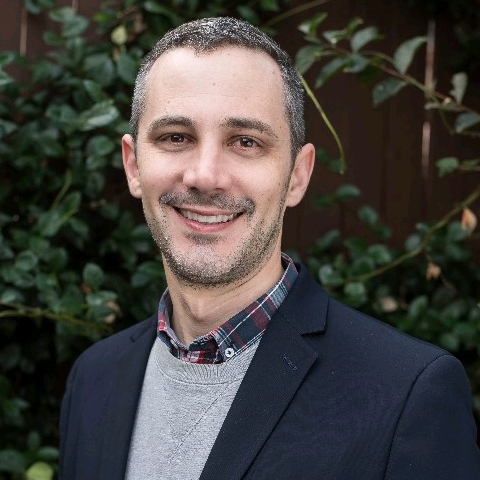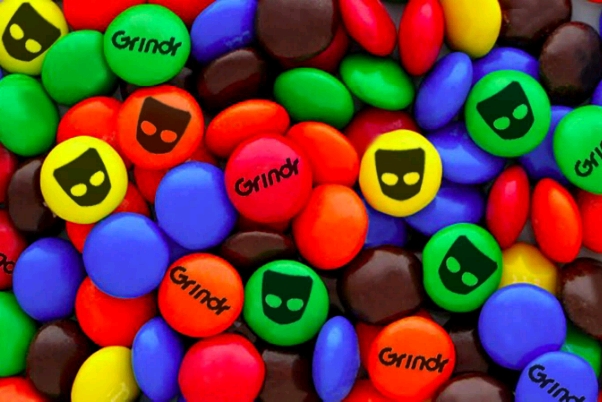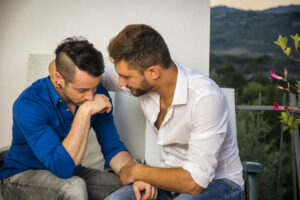In his collection of poetry entitled Leaves of Grass, Walt Whitman penned “The Body Electric,”
I sing the body electric;The armies of those I love engirth me, and I engirth them;They will not let me off till I go with them, respond to them;And discorrupt them, and charge them full with the charge of the Soul.
More than 150 years later, his words evoke an intimate sexual desire. From the chase to the climax, this excerpt is filled with longing, and for its time, was quite pornographic. I can only imagine the lengths same-sex loving folks would have gone at this time to find a lover, companion, or romantic relationship.
When I was a young gay boy, I lived in Huntington Beach, California. Hardly a bastion of LGBTQ-affirmative values (except, at that time, Laguna Beach), I drove an hour to Los Angeles to see people like me. I remember very well putting five bucks of gas in the tank of my 1984 Honda (in those days, it got me to the club and back), and turning left off of the 101 onto Santa Monica Boulevard. After parking my car at 7-11, I walked across the street, pangs of anticipation, fear, and excitement pulsating through my 18-year-old body (apparently in the mid-90’s, they didn’t check ID’s either). If I were lucky that night, I would lock eyes with someone on the dance floor, cruise, flirt, chat, and awkwardly ask them out on a date. Face to face. Without a phone in my hand. I’d write my number (dad’s landline) on a bar napkin after sheepishly asking the bartender if I could borrow her pen.
If I sound nostalgic for those days, it’s because I am. Partially, I think, this is a result of a privileged romanticism–after all, I was shielded from the devastation of AIDS by the time and geography of my birth. But this period served as an important developmental stage of my teenage years–the ability to individuate from my family of origin and the abhorrent conservatism of 1990’s Orange County. I learned how to communicate, face the brutality of in-person rejection, and cherish the loving support of my girlfriends whose arms I fell into after the romance (or fantasy) ended.
Enter the internet. And Grindr. Scruff. Daddyhunt. Etcetera. These tools brought the bar or club to us, and fundamentally changed the landscape of our culture with an endless supply of faces and potential lovers at the fingertips of the user. About ten years ago, I was at Hot ‘N Dry, a sober gay men’s retreat in Palm Springs. I was sitting at the pool with a friend when a familiar chirp broke the air. He was messaging someone on Grindr. “Girl,” I implored, “he’s literally 20 feet away. Just go talk to him!” But my friend couldn’t, or wouldn’t; he was too embarrassed to show his interest without the app as a buffer from rejection and loneliness.
Now that we have the ability to interact sexually without leaving our house, or office, or sex club, are we better off? Does the access to sex and instant gratification (whether or not the act is completed) circumvent an essential part of ego development? I would say it does. And according to a survey of 200,000 iPhone users published by The Center for Human Technology, 77% of Grindr users reported feeling “regret” after logging off of the app. As compared to the Kindle app, where 96% of users reported feeling “happy” after their usage. They also report the average time users spent on Grindr per day is 61 minutes.So, if using Grindr makes people unhappy, why are they using it? One theory, according to Steven Cole, a professor of medicine and psychiatry and biobehavioral sciences at the UCLA School of Medicine, is that using hook-up apps produced a similar effect to eating “empty calories.” In the short term, it feels good to eat junk food, but in the long run, it isn’t healthy. It’s a similar effect of using drugs, in the sense that there is a dopamine hit from the thrill of the hunt, but without the benefits of long-term intimate connection. For those who are recovering, this may result in a “transfer” of addiction, whereby drugs and/or alcohol are supplanted by using the app.
What I’ve noticed for men in recovery is that the longing for connection and intimacy is a constant, both before, during, and after sobriety. The question becomes, where do we get it?For those still using substances, I’d suggest that alcohol, crystal meth, and other drugs serve as a bypass mechanism by which the person is free from the burden of toxic shame. Therefore, once we remove substances, the recovering person is left to feel the hurt, pain, anger caused by traumatic events and experiences. Especially for LGBTQ-identified folks, the risk of rejection is too deep a well to traverse without a numbing agent. In this case, hook-up apps. So, we are left with our despair and heartache, only to be swiped to the left.
I might suggest a Grindr diet and a dive into the unknown, unexplored Self through intimacy and connection with others. It’s an interesting paradox because seeking community in recovery can feel so isolating. I believe this is a result of being mirrored by our own fears, inadequacies, and shame (also known as homophobia/transphobia/biphobia). It’s too much to bear in ourselves and even more confronting to be reflected in the mirror of relationship. One way to foster a connection with others is through intimacy and relationship with the Self. Understanding ourselves, connecting (through therapy, step work, journaling, etc.) with those deep fears, uncomfortable feelings, and healing our own trauma can lead to an inner desire and longing. That way, we won’t have to search for a lover, because he’ll be zero feet away.
Written by: Ian Jensen – Primary Therapist La Fuente Hollywood Treatment Center




